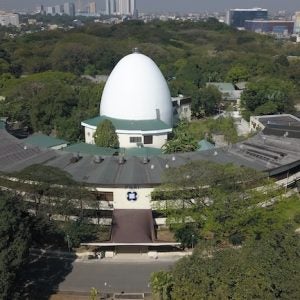Canadian Nuclear Laboratories (CNL) announced on 2 April that isotope production reactor the National Research Universal (NRU) at the Chalk River site had been permanently shut down. It will now be placed into a "state of storage" prior to decommissioning. The reactor, which produced about 40% of world supply of molybdenum-99 (Mo-99), ceased production in October 2016, since when it has remained on standby "in case of a significant shortage which could not be mitigated by other means". Research reactors in Australia, Europe, Russia and South Africa have since met demand.
The design for NRU began in 1949, with plans for it to be built as the successor to the NRX reactor at the Chalk River Laboratories. It was initially designed as a 200MWt reactor fuelled with natural uranium, but in 1964 it was converted to 60MWt using high-enriched uranium (HEU) fuel. It was converted a third time in 1991 to 135MWt running on low-enriched uranium (LEU) fuel.
In 1958, less than a year after it began operation, NRU suffered a serious accident when a damaged uranium fuel rod caught fire as it was being removed from the core. Clean-up and repair took three months. NRU's calandria, which is made of aluminium, was replaced in 1971 because of corrosion. In 1996, it was decided that the reactor would close in December 2005 based on the assumption that a replacement facility would be in place.
In 2000, Canada’s government said the reactor would stop routine production of Mo-99 in October 2016. The government sought to develop alternative sources of supply for medical radioisotopes, including construction of two 10MWth MAPLE (Multipurpose Applied Physics Lattice Experiment) research reactors at Chalk River to replace NRU. However, this was abandoned in 2008 after $680m was spent on the project. In 2003, it was decided to continue operation of NRU and the operating licence was extended to 2006. A 63-month licence renewal was then obtained in July 2006, allowing operation until October 2011.
The reactor was shut down for routine maintenance in November 2007 and the outage was extended to allow for upgrades, resulting in a worldwide shortage of medical radioisotopes. The Canadian House of Commons then passed emergency legislation in December 2007 authorising the restart of the NRU with upgrades incomplete, leading to political tensions. The upgrades were completed by February 2008 but in mid-May 2009 a heavy water leak at the base of the reactor vessel was detected, causing another shutdown. The reactor was defuelled and drained of all its heavy water moderator and remained offline until August 2010. Repairs cost some $70m.
Meanwhile, the Canadian Nuclear Safety Commission has approved CNL's application to renew the operating licence for the Chalk River nuclear campus. The new licence is valid until the end of March 2028. "This is exceptional news for the future of Canadian Nuclear Laboratories, the hard-working professionals who work at out Chalk River campus, and more broadly for our local communities here in the Ottawa Valley and the nuclear industry in Canada," said CNL President and CEO Mark Lesinski.






